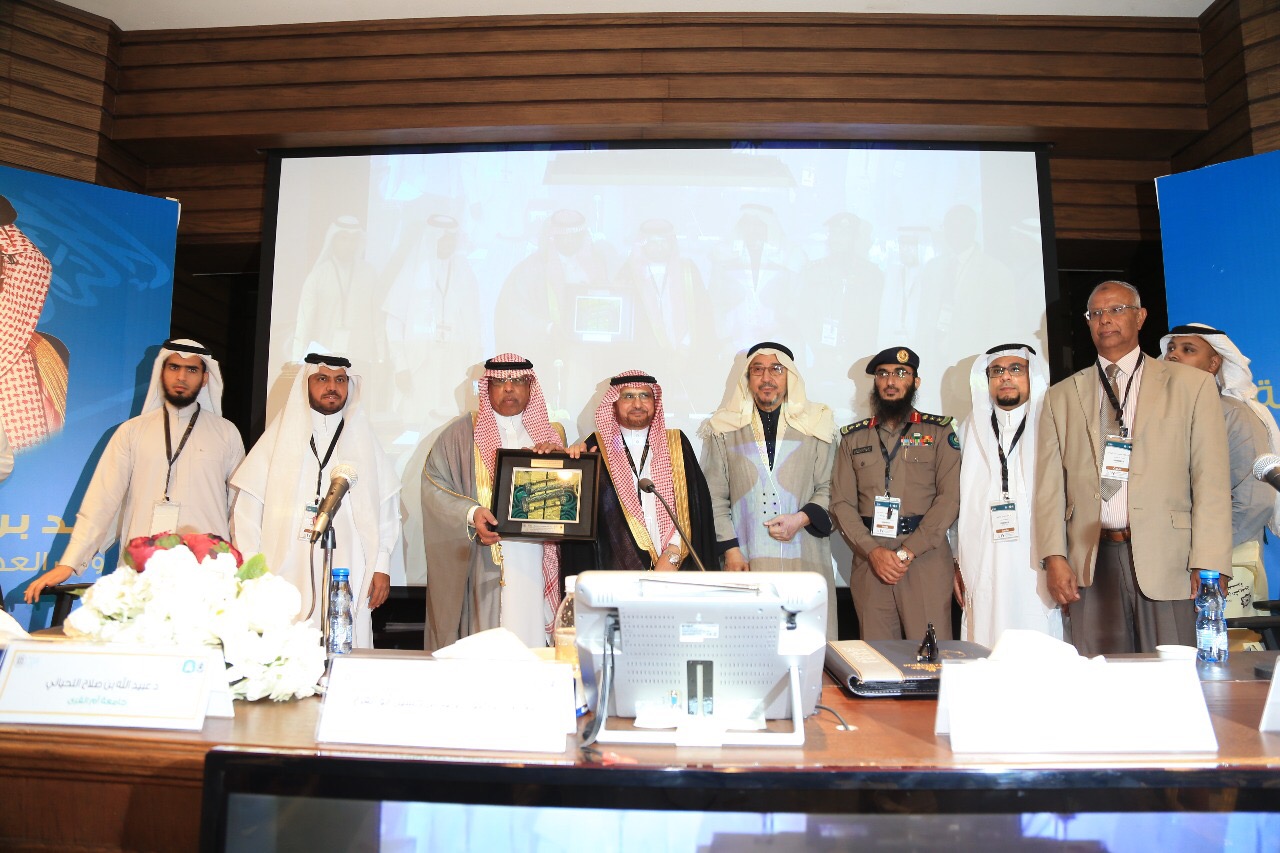
Activities of the 17th Hajj Research forum kicked of Wednesday Sha'ban 14, 1438 H with the participation of constellation of researchers and specialists in the Saudi universities and research centers. The first scientific session was about Management and Economy and chaired by the Vice President of King Abdullah City for Atomic & Renewable Energy H.E. Dr. Waleed Hussain Abulfaraj. The session started with a working paper presented by Col. Dr. Mohamed bin Abdul-Aziz AboAbat from the General Directorate of Civil Defense, Ministry of Interior under the title" Improving the capacity of Hajj Managing Organizations in Crises Management". In his paper, Dr. AboAbat referred to the importance of selecting administrative and security leadership and developing their capacities to perform their roles efficiently and effectively. He added that crises management depends on basic elements and principles including; coordination between the concerned bodies, defining and prioritizing the objectives, setting policies, plans and regulations securing strategic orientation to prevent crises, providing early warning systems, developing analyses and prediction tools of crises and setting alternative plans to confronting them. He referred to the importance of creating a task force of experienced members and providing an integrated information system to support decision-making.
For his part. Dr. Obaidullah bin Salah Al-Lihiani from UQU College of Education, submitted a paper about "The role and status of crises and risks management amongst sectors working in Hajj and Umrah", in which he referred to the importance of the role undertaken by sectors working in the Hajj and Umrah Affairs and recommend establishing a unit or special department for crises management in all sectors working in the field of Hajj and Umrah, issuing regulations for crises management and define tasks and responsibilities in this regard in addition to selecting qualified leadership to run these units.
While Eng. Faris Al-Saadi, Eng. Mowfaq Abdullah Balkhi and Dr. Ahmed Mohamed Kholaifat from General Department of Maintenance and Operation in the Grand Mosque tackled in their paper, titled "Strategic Transformation of the General Department of Maintenance and Operation in the Grand Mosque", requirements of operating electrical, mechanical and electrical devices used in the expansion of the Grand Mosque underscoring sustainability of its operation around the clock according to the best international practices in the field of operation and maintenance and in line with the instructions of the manufacturing companies.
They added that they have evaluated current status according to a scientific method depending on collecting data about the variables including; objectives, vision, tasks, organizational structure, obstacles, development, planning, motivation, and E-Systems. They have also analyzed feedbacks of the respondents statically by calculating arithmetic mean and standard deviation, explaining the results and then setting a number of recommendations.
Within the same vein, Dr. Omer bin Hussein Gazawi from Prince Sultan College of Al-Faisal University called in his paper titled: "Impact of applying total quality principles of Hajj facilities services", to increase concern and commitment of Tawafa organizations and Hajj offices in applying all dimensions of total quality to develop Grand Mosques services in line with the desires and aspirations of the pilgrims referring to the importance of involving administrative officers and workers in the fields of guidance in Hajj.
He referred to the importance of providing flexible administrative systems that can be renewed, developed and adjusted to fitting services provided for the pilgrims at the Grand Mosques in Makkah, revealing that application of total quality principles on the services and facilities of Hajj will facilitate pilgrims movement and provide best quality standards to improve the performance of these facilities through the continuous improvement of the quality of these services.
In the same session, Dr. Abdullah Mohamed Abdul Rahman, Dr. Fadhil Osman, Dr. Ahmed Mohamed Hilali and Dr. Ahmed Hatim Qadhi from the Custodian of Two Holy Mosques Institute for Hajj and Umrah Research presented a paper titled:" Social and psychological dimensions of crowd management and organization, field study of last year's Hajj season", in which they highlighted the need develop crowd organization process based on the vision of the sociologists and psychologists to study human behavior during the Hajj season.
They pointed out to the importance of studying status quo of the social, cultural and behavioral dimensions forming crowd management and organization process by identifying pilgrims opinions so as to provide realistic patterns and models of crowd management and the best human social and behavioral interaction currently and in the future.
Further, they lauded the Kingdom's role and interest in crowd management materialized in spending more than US 300 million in the recent years to improve pilgrims safety measures with the assistance in the fields of mathematics, engineering and information technology to conduct studies on simulation system and crowd models during Hajj and Umrah seasons.
At the conclusion of the session Dr. Sami Mohsin Angawi presented a paper titled: " Solution and total view of Hajj" in which he focused on the importance of setting short and long term plans based on organizational, executive and supervisory studies taking into consideration numerical expansion and future increase of pilgrims besides providing integrated and balanced system to accommodate the expected increase. He then recommended setting a commission with a technical body including all relevant bodies.